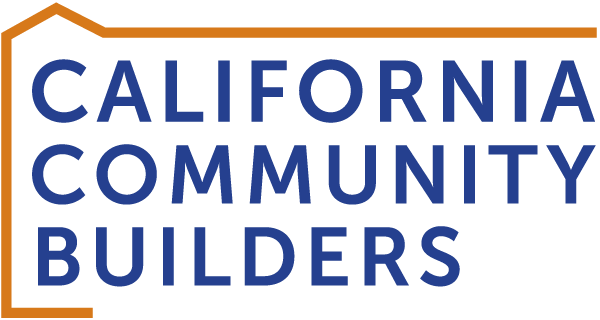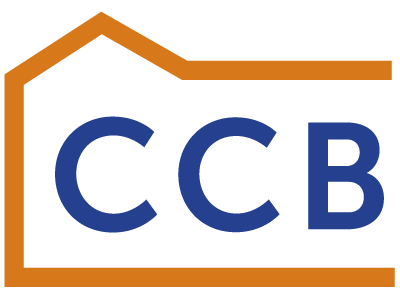Saying Goodbye to Leila and Moremi: Reflections on their Time at CCB
CCB Appreciation and Goodbye Lunch, Berkeley, May 2024
(L-R: Adam Briones, Giuliana Ramirez, Leila Brannan, Gillian Welcher, Silvia Aguilar, Moremi Olora, Greg Magofña)
At CCB, the future is very important to us. This is why we invest in our interns and student leaders to help them reach their full potential for success in their academic and professional careers. Our newest intern, Danielle De Silva, asked graduating interns and Leadership Academy participants, Leila Brannan and Moremi Olora to reflect on their work at CCB. In the interview transcribed below (and edited for length and clarity), they gave insights on how their work connected with their academics and personal lives. Their stories and initial motivations to join us showcase the diversity of CCB, united by drive and passion for inclusivity in housing.
Leila Brannan
UC Berkeley Architecture ‘24
Moremi Olora
UCLA Sociology (minor: African American Studies) ‘24
Danielle: Let’s talk about why housing policy is important to you. What drew you to it, and does it relate to your major?
Leila: I'm an architecture major and I feel like housing policy is important for people in that major to understand because architecture work has such an effect on people. When I look at how the systems of this country are extremely racist and how that exists within housing, I think racial inequities are important for everyone to understand in their profession, along with the history of their work and how it can perpetuate inequalities.
Moremi: Coming into this internship, I wasn't super knowledgeable about housing or homeownership, and what I knew was from seeing the homelessness in the Los Angeles area and from living in it for the last few years. It hurts my heart to see these beautiful YSL and Gucci buildings and then people not having a home to stay in on the opposite end. Trying to give back to the homeless has always been a big passion of mine, and being here at CCB has given me the opportunity to learn more about housing and how to encourage people of color to obtain housing and help close the racial wealth gap. Overall, learning about closing the racial wealth gap in housing has been great.
Danielle: You both worked on so many different projects in your time at CCB. What would you say is the most interesting or surprising thing you learned while you were working at CCB?
Leila: I had the pleasure of working on a few different projects. When I first joined, there was the middle-income report that was in the works with research. Getting to read up on that was really educational and I connected it to my hometown experiences in Woodland. Seeing how housing being built on farmland is majority single-family housing and isn't accessible to longtime community members was also covered in a Terner Center report I read for research. For me, I think it was really interesting to connect my experience of growing up in this area that was majority farmland and how it's kind of devastating for the community that lives there where housing is being built that isn't accessible.
Moremi: During Leadership Academy, which was something that we did once a week, we learned a lot about leadership and different guests came in. One guest, Bruce, taught us a lot about what goes on behind the scenes in media interviews and how to conduct yourself in a formal interview. I learned so much about that because I didn't realize how much thought goes into conducting yourself. Learning how to have a good media interview and how to be prepared for that is something that I'm taking away and that I found super interesting and surprising.
Danielle: How do you see your work at CCB contributing to the work you want to do in the future? And where do you see yourself in five years?
Leila: I really appreciate the work that CCB does around multi-family housing and denser housing, and I think that's because single-family zoning is so prevalent in this country. I'm really interested in designing denser housing and places where housing is more affordable and walkable at different scales. And five years in the future, I think with architecture, you have to be really intentional about the type of architectural work you do. So, if I'm working in architecture, I hope it's something specific that is community-oriented.
Moremi: During my time at CCB I primarily worked on an environmental justice memo that looked at the intersection of housing and the environment and worked on closing the racial wealth gap. As a sociology major, it's something that we discuss a lot, just making sure that communities of color have the same opportunities as affluent white communities. The work that I did here taught me a lot about environmental racism and how things like redlining still continue to affect people of color today. My long-term goal is to give back to people of color. That's just one more thing that kind of added to the repertoire of things to give back to my community and be mindful about in my work. Five years from now, I see myself in a job that I really enjoy and living in a place that I really enjoy. I also want to be working in a really fun environment like CCB.
Danielle: What would your advice be for the next intern to come through CCB?
Leila: Share your interests because everyone at CCB is super cool and may have a shared interest with you. Also, don't be afraid to be yourself and ask questions because I learned a lot about housing policy just by being honest about what I didn't know.
Moremi: I would say take advantage of the resources in CCB. There are so many amazing connections and such a good network in CCB to help you advance in your career. There are so many amazing people in CCB and connected to CCB, so you are set when it comes to networking.
Danielle: What is something that you'd like people to know about CCB that they might not if they don't work here?
Leila: I think that CCB is really open to different approaches to addressing the housing crisis. Also how CCB does a lot of research, like the middle-income report and their research on multifamily home ownership. That was really interesting to me when I first joined CCB, they had just put that report out and it's something that is really common for a lot of people culturally, but I really appreciated that CCB very explicitly pointed that out as something that's helpful to the housing crisis. So yeah, CCB does a lot of different work. Also, something I've been so grateful for at CCB is their support of Architecture students generally at UC Berkeley. We did two semesters so far of a support scholarship for architecture students to gain access to laser cutting and materials, because these are things that can really affect a student's experience and it's generally pretty inaccessible. So I really appreciate CCB’s interest and support in making it a more inclusive place.
Moremi: I would want people to know that CCB really puts in the work. The organization is so small and every single person in the organization is so passionate about housing policy, and they go forth with their whole hearts and so passionately about everything. That was so beautiful to see and witness because you know that they are genuinely here to give back and close the racial wealth gap. They are putting in the effort to help communities everywhere in California.
Danielle: CCB is a tight-knit community. Is there anyone that you want to give a shout out to that you enjoyed your time with or who taught you something that you'll take with you in your time after graduation?
Leila: Adam, Greg, and Sylvia are amazing. I'm so grateful to have had them as my bosses. I really appreciate CCB and think that at this place, you talk to the CEO every day and get support about the work from them. And I appreciate the work Greg and Sylvia have done, and how everyone has supported the architecture major and worked on the student scholarship. Also, Leadership Academy has just been an amazing experience to get to meet different professionals and advocates and housing. I appreciate the amazing opportunities from CCB.
Moremi: I worked closest with Adam, the CEO. He would always make sure that I was doing well career-wise and gave me so much good advice just making sure that I would stay on my own path even if it's not linear. He shared the path that he took to get where he’s at including the mistakes that he made and what he learned along his journey, and I really appreciated that. It was nice to have somebody in such a commendable position now talk about the steps they took to get there. He instilled a lot of hope in me, because I saw the hope he had in me.




